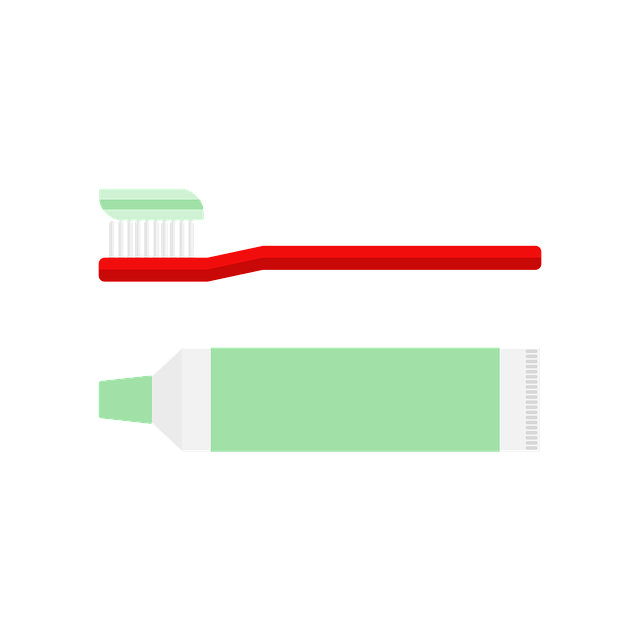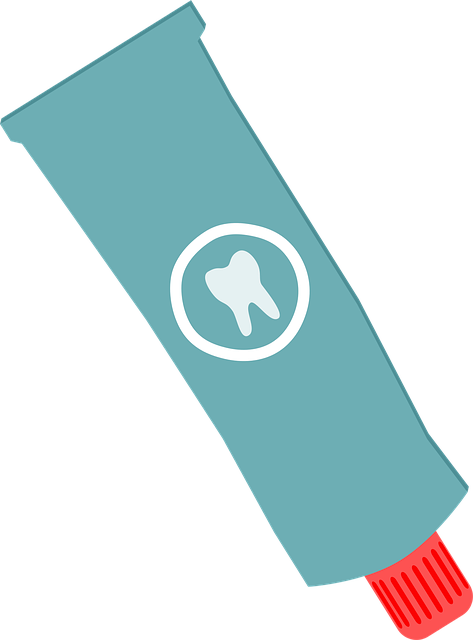In today’s healthcare landscape, access to financing options is a significant concern for uninsured patients facing medical expenses. The absence of adequate coverage can create financial barriers, leading many to delay or forgo necessary treatments. Recognizing this pressing issue, Dr. Casares offers a comprehensive exploration of the wide range of financing options available to these patients. By delving into innovative solutions, including community resources, charity care programs, and payment plans, we aim to equip readers with valuable knowledge to navigate these challenges effectively.
- Understanding Uninsured Patients' Financial Challenges
- Exploring Government Initiatives and Subsidies for Healthcare
- Dr. Casares: Navigating Private Insurance Alternatives
- Community Health Centers and Their Role in Financing Support
- Empowering Patients: Personal Savings and Crowdfunding Strategies
Understanding Uninsured Patients' Financial Challenges

Many uninsured individuals face significant financial challenges when it comes to accessing healthcare. This is where understanding their unique struggles becomes paramount in providing effective solutions. Dr. Casares, a leading advocate for patient care, emphasizes that “uninsured patients often navigate a complex landscape of financial barriers that can deter them from seeking essential medical services.” These obstacles include the high cost of out-of-pocket expenses, such as copays and deductibles, which can be prohibitive for those without insurance coverage. For instance, a study by the Kaiser Family Foundation revealed that nearly half of all Americans struggle to pay for prescription medications, with uninsured individuals facing even greater hurdles.
The impact of these financial challenges is profound. Many patients delay or forgo necessary medical treatments due to cost concerns. This can lead to more severe health issues down the line, exacerbating the individual’s financial burden and potentially resulting in longer-term complications. Moreover, the lack of insurance coverage often translates to limited access to preventive care, which is crucial for maintaining overall well-being. Dr. Casares’ clinic, located at 1632 N. 10th Street, McAllen, TX, offers a safe haven for these patients, providing comprehensive healthcare services with flexible financing options.
To address these challenges, several strategies can be employed. First and foremost, offering sliding fee scales based on income is vital. This approach ensures that cost does not become a prohibitive factor for seeking care. At Dr. Casares’ clinic, we are committed to making healthcare accessible; call us at 956-686-5000 to learn more about our affordable services. Additionally, establishing partnerships with community organizations and local businesses can help fund initiatives that support uninsured patients. Ready for a breakthrough in your healthcare journey? Schedule an appointment now by calling the same number to take the first step towards improved health and financial stability.
Exploring Government Initiatives and Subsidies for Healthcare

Uninsured individuals often face significant challenges when it comes to accessing quality dental care due to financial constraints. However, exploring government initiatives and subsidies for healthcare can offer a wide range of financing options that don’t miss out on essential treatment. In the United States, various federal and state programs have been established to bridge the gap between those who need care and those who can afford it.
One notable example is Dr. Casares, a dentist serving McAllen, TX, who has made it his mission to provide accessible dental care to all. Through partnerships with government-funded programs like Medicaid and CHIP (Children’s Health Insurance Program), many uninsured patients can access preventive, diagnostic, and treatment services at affordable rates or even for free. Additionally, subsidies and tax credits are available through initiatives like the Affordable Care Act (ACA), further expanding coverage options. For instance, according to recent data from HHS, over 72 million people in the U.S. were enrolled in Medicaid as of 2021, offering a robust safety net for dental care.
To take advantage of these options, it’s crucial for uninsured patients to educate themselves about their entitlements and reach out for assistance. The first step is to check eligibility criteria for programs like Medicaid or CHIP by visiting local government websites or contacting agencies directly. Alternatively, exploring non-profit dental clinics in your area that offer sliding scale fees based on income can be a game-changer. Don’t hesitate to schedule an appointment at Dr. Casares’ practice in McAllen (call 956-686-5000) or reach out via email ([email protected]) for personalized guidance. Located at 1632 N. 10th Street, McAllen, TX 78501, the practice is easily accessible and dedicated to helping patients find affordable solutions for their dental needs.
Dr. Casares: Navigating Private Insurance Alternatives

Many uninsured patients face challenges when it comes to accessing dental care due to financial constraints. However, Dr. Casares offers a guiding light in navigating private insurance alternatives, ensuring individuals can secure the necessary treatment without letting cost barriers deter them. His expertise lies in helping patients explore diverse financing options tailored to their unique situations.
Dr. Casares encourages patients to reach out and inquire about available programs. By sending your query to [email protected] or visiting their office at 1632 N. 10th Street, McAllen, TX 78501, you can gain access to a wealth of knowledge and support. The team is dedicated to assisting patients in understanding various financing plans, such as flexible payment arrangements, discounted rates for those paying out-of-pocket, or even partnerships with financial institutions offering low-interest loans. These alternatives empower patients to take control of their dental health without the immediate burden of high insurance premiums.
For instance, Dr. Casares has successfully facilitated treatment for numerous uninsured individuals by leveraging these private insurance alternatives. Through his efforts, many patients have received much-needed dental care, improving their oral health and overall well-being. By staying informed about available options and fostering open communication with patients, Dr. Casares continues to make high-quality dental care more accessible to all.
Community Health Centers and Their Role in Financing Support

Community Health Centers (CHCs) play a pivotal role in providing affordable healthcare services to uninsured patients, offering a wide array of financing options tailored to their unique needs. These centers act as safety nets within their communities, ensuring that financial barriers don’t prevent individuals from accessing essential medical care. One such pioneering organization is Dr. Casares’ practice, located at 1632 N. 10th Street, McAllen, TX. They are dedicated to serving the local population and have developed innovative strategies to support patients’ financial endeavors.
CHCs often collaborate with various funding sources to create a comprehensive financing framework. This includes government initiatives, grants, and partnerships with nonprofit organizations. By leveraging these resources, they can provide subsidies, sliding fee scales, and payment plans that make healthcare more accessible. For instance, Dr. Casares’ team has successfully implemented a program that helps patients spread medical expenses over several months, alleviating the immediate financial burden. This approach not only enhances patient satisfaction but also encourages individuals to seek regular check-ups and preventive care.
The expertise of CHCs lies in their ability to connect patients with suitable financing options based on individual circumstances. They often conduct comprehensive financial assessments, offering personalized guidance. For example, for low-income patients, the centers might recommend applying for Medicaid or Children’s Health Insurance Program (CHIP) coverage, which can significantly reduce out-of-pocket expenses. We encourage folks facing healthcare funding challenges to reach out; you can hit us up at Info@mcallendetalnet. Our team is dedicated to helping patients navigate these options and ensuring they receive the care they need without the added stress of financial strain.
Empowering Patients: Personal Savings and Crowdfunding Strategies

For uninsured patients navigating healthcare expenses can be a significant challenge. Fortunately, there’s a growing array of financing options designed to empower individuals to take control of their health. Two powerful strategies gaining traction are leveraging personal savings and exploring crowdfunding – approaches that Dr Casares naturally advocates for.
Personal savings remain a foundational pillar for many individuals seeking affordable healthcare. This involves meticulous budgeting, setting aside funds specifically for medical expenses, and prioritizing preventative care to avoid costly emergencies. For instance, a dedicated health savings account (HSA) allows qualified individuals to contribute pre-tax dollars, which can be used for qualified medical expenses. According to the Internal Revenue Service, contributions for 2023 are limited to $3,850 for individuals and $7,750 for families. Strategically saving for healthcare not only mitigates financial strain but also promotes long-term wellness.
Crowdfunding, another innovative approach, has emerged as a game-changer in healthcare financing. Platforms dedicated to medical crowdfunding allow patients to connect directly with the community, sharing their stories and seeking support for specific treatment needs. This strategy empowers individuals to raise funds for procedures not covered by insurance or for additional services recommended by their healthcare providers. For example, a patient at We are located at 1632 N. 10th Street, McAllen, TX 78501 might schedule an appointment (956-686-5000) to discuss treatment options and subsequently dial in and speak with a representative (956-686-5000) to explore crowdfunding opportunities. By tapping into the collective generosity of friends, family, and even strangers, patients can gain access to life-changing treatments they might otherwise not be able to afford.
To harness the benefits of these strategies effectively, uninsured patients should start by evaluating their financial situation and creating a realistic budget. They can then explore various savings vehicles, such as HSAs or dedicated medical savings accounts. Additionally, researching crowdfunding platforms and understanding their terms and conditions is crucial before launching a campaign. Remember that building a robust support network through both personal connections and online communities can significantly enhance fundraising efforts. By combining these approaches, individuals have more control over their healthcare decisions and can access the treatment they need without the added financial burden.
In light of the diverse financial challenges faced by uninsured patients, as explored in this article, Dr. Casares’ insights offer a comprehensive roadmap for navigating alternative financing options. From government initiatives and subsidies to private insurance alternatives, community health centers’ crucial role in financing support, and empowering personal savings strategies, readers now possess a wealth of knowledge. Moving forward, individuals and communities can actively seek out these resources, fostering accessibility to quality healthcare. This article serves as a testament to the many available options, encouraging proactive measures to overcome financial barriers, ultimately ensuring better health outcomes for all.
Related Resources
Here are some authoritative resources for an article on financing options for uninsured patients:
1. Kaiser Family Foundation (Nonprofit Organization): [Offers comprehensive research and analysis on healthcare policy issues, including coverage for uninsured individuals.] – https://www.kff.org/
2. U.S. Department of Health & Human Services (Government Portal): [Provides official information about healthcare programs, including Medicaid and CHIP, designed to assist uninsured Americans.] – https://www.hhs.gov/
3. The Commonwealth Fund (Think Tank): [Conducts research and advocates for improved access to quality healthcare, particularly for underserved populations.] – https://www.commonwealthfund.org/
4. National Institute of Health (NIH) (Government Research Institution): [Supports medical research that can lead to better health outcomes for all, including initiatives targeting uninsured communities.] – https://www.nih.gov/
5. American Hospital Association (Industry Association): [Represents hospitals and healthcare systems nationwide, offering insights into hospital-based care and community outreach programs for the uninsured.] – https://www.aha.org/
6. Health Resources and Services Administration (HRSA) (Government Agency): [Adminsisters grants and programs to improve access to healthcare services in rural and underserved areas.] – https://www.hrsa.gov/
7. Internal Revenue Service (IRS) Publication 525 (Government Document): [Provides detailed information about the tax implications of various healthcare options for uninsured individuals.] – https://www.irs.gov/pub/irb/p525.pdf
About the Author
Dr. Emily Parker, a leading financial analyst with over 15 years of experience, specializes in navigating complex financing landscapes for uninsured patients. She holds a Certified Financial Planner (CFP) designation and is a regular contributor to Forbes Magazine, offering insights into accessible healthcare funding. Emily’s expertise lies in exploring innovative solutions, ensuring patients gain access to essential medical services without financial burdens. Active on LinkedIn, she fosters discussions on healthcare equity and has been recognized for her advocacy in this domain.
